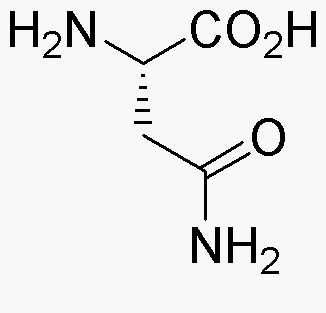L-Asparagine anhydrous is widely utilized in research focused on:
- Biotechnology: It serves as a vital amino acid in cell culture media, promoting the growth of various cell lines, including those used in vaccine production and monoclonal antibody development.
- Pharmaceuticals: This compound is essential in the synthesis of certain medications, particularly those targeting neurological disorders, due to its role in neurotransmitter synthesis.
- Food Industry: It acts as a flavor enhancer and stabilizer in processed foods, improving taste and shelf-life without compromising nutritional value.
- Research Studies: L-Asparagine is frequently used in studies related to protein synthesis and metabolism, providing insights into cellular functions and disease mechanisms.
- Cosmetics: Its moisturizing properties make it a popular ingredient in skincare products, helping to improve skin hydration and elasticity.
General Information
Properties
Safety and Regulations
Applications
L-Asparagine anhydrous is widely utilized in research focused on:
- Biotechnology: It serves as a vital amino acid in cell culture media, promoting the growth of various cell lines, including those used in vaccine production and monoclonal antibody development.
- Pharmaceuticals: This compound is essential in the synthesis of certain medications, particularly those targeting neurological disorders, due to its role in neurotransmitter synthesis.
- Food Industry: It acts as a flavor enhancer and stabilizer in processed foods, improving taste and shelf-life without compromising nutritional value.
- Research Studies: L-Asparagine is frequently used in studies related to protein synthesis and metabolism, providing insights into cellular functions and disease mechanisms.
- Cosmetics: Its moisturizing properties make it a popular ingredient in skincare products, helping to improve skin hydration and elasticity.
Documents
Safety Data Sheets (SDS)
The SDS provides comprehensive safety information on handling, storage, and disposal of the product.
Product Specification (PS)
The PS provides a comprehensive breakdown of the product’s properties, including chemical composition, physical state, purity, and storage requirements. It also details acceptable quality ranges and the product's intended applications.
Certificates of Analysis (COA)
Search for Certificates of Analysis (COA) by entering the products Lot Number. Lot and Batch Numbers can be found on a product’s label following the words ‘Lot’ or ‘Batch’.
Número de catálogo
Número de lote/lote
Certificates Of Origin (COO)
This COO confirms the country where the product was manufactured, and also details the materials and components used in it and whether it is derived from natural, synthetic, or other specific sources. This certificate may be required for customs, trade, and regulatory compliance.
Número de catálogo
Número de lote/lote
Safety Data Sheets (SDS)
The SDS provides comprehensive safety information on handling, storage, and disposal of the product.
DownloadProduct Specification (PS)
The PS provides a comprehensive breakdown of the product’s properties, including chemical composition, physical state, purity, and storage requirements. It also details acceptable quality ranges and the product's intended applications.
DownloadCertificates of Analysis (COA)
Search for Certificates of Analysis (COA) by entering the products Lot Number. Lot and Batch Numbers can be found on a product’s label following the words ‘Lot’ or ‘Batch’.
Número de catálogo
Número de lote/lote
Certificates Of Origin (COO)
This COO confirms the country where the product was manufactured, and also details the materials and components used in it and whether it is derived from natural, synthetic, or other specific sources. This certificate may be required for customs, trade, and regulatory compliance.


